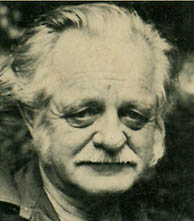
|
|
| |
| |
| |
| |
| |
In 1956, when I was in Chicago, people asked me "what kind of poetry is this 'Beat' thing we keep hearing about?" I mimeographed the following Whalen poem (which I had from a letter he sent me) and passed it around. FURTHER NOTICESoon, "Yellowstone National Park" was used by secretaries, bosses, whatever kind of wage slave, as a way of showing their integrity when things got tough. These poems are useful. They are also brilliant and swift: I praise those ancient ChinamenThat's a lot of ground to cover in a breath, and he makes it swing, hard as jazz, straight as talk. It's the new America speaking. Away old Puritan greed! Marx? Forget it. Freud? Goodbye! Hello crazy old-time China.  Kenneth Rexroth from the back cover of An Autobiographical Novel, published in 1978 by Ross-Erikson Inc, Publishers, 223 Via Sevilla, Santa Barbara CA 93109. And the Zen mind Whalen respects and uses is given back to us in American speech and imagery. He "makes it new" out of his Oregon mind. His bear's head. He does this knowing he is doing it. It is not a case of untrained magic genius. Whalen is that rare scholar who is in it only because he wants to know. Some books he prefers to challenge with a poem. Others, he venerates. Not since Rexroth, and before him Pound, have we had in America a man who respects, and knows, his forefathers so well. Tinkle-Tinkle, DamnHe loves music, all of it. He plays at Bach, badly, on tinny, borrowed pianos. Once, after four hours of "tinkle-tinkle," stop, tinkle, "damn," he said, "There is not a single piece of piano music I can play all the way through without making a mistake." Then off to Ornette Coleman, or electronic sound by Subotnick, John Cage, Ives, anything. Certainly this accounts for the great range of his meters. I don't know of any poet in this century who has broken more new ground, formally, than Whalen. He can make anything work, whereas most poets, e.e. cummings comes to mind, find a music and stick pretty close to it all their lives. This is another reason why, although Whalen is not so famous as the more dramatic members of his generation, the poets themselves pretty well agree that he has few peers. Some of our more conservative readers and writers of poetry maintain he's only silly and flippant. Apparently they want to believe that it must be painful and dull or it can't be deep. Gloom. What a shame these people have missed the hundreds of years of laughter and teachings of Zen Lunatics, Idiot Savants, DaDa (which so frightened our grandparents and so quickly cleaned things up). Yes, there is an almost arrogant "why not?" in Whalen, as there was in Charles Parker, as there is in all the arts today. Laughter and zany wit can cut through so much grease, so fast. Whalen is a master of this part of it, too. There is only one bad thing about the book, the outrageous $17.50 price. This is a plain trade edition - the kind of book for which we now pay, maybe, $8.50. There isn't even an alphabetical index of titles and first lines, and the book has 326 poems in it. Is this an attempt to set some ugly precedent? What really hurts is that Whalen walks with that stubborn army of penniless poet-scholars who will suffer great privations if that be necessary to get the work done. He has averaged less than $17.50 a week for 20 years. Whalen is an heroic symbol of frugality even in the drop-out scene - a serious man whose simple and richly productive life has taught us all a most important lesson. To abuse such a stance this way is scandalous. | |
| |
Lew Welch, together with poets Philip Whalen and Gary Snyder, formed the nucleus of a group of intellectually versatile students at Portland's Reed College around 1950, sharing a passion for Ezra Pound, jazz, Gertrude Stein and Asian studies. In San Francisco they became affiliated with Jack Kerouac, Allen Ginsberg and the S.F. Renaissance "anti-establishment" poets and writers of the '50s. | |
|
|
|